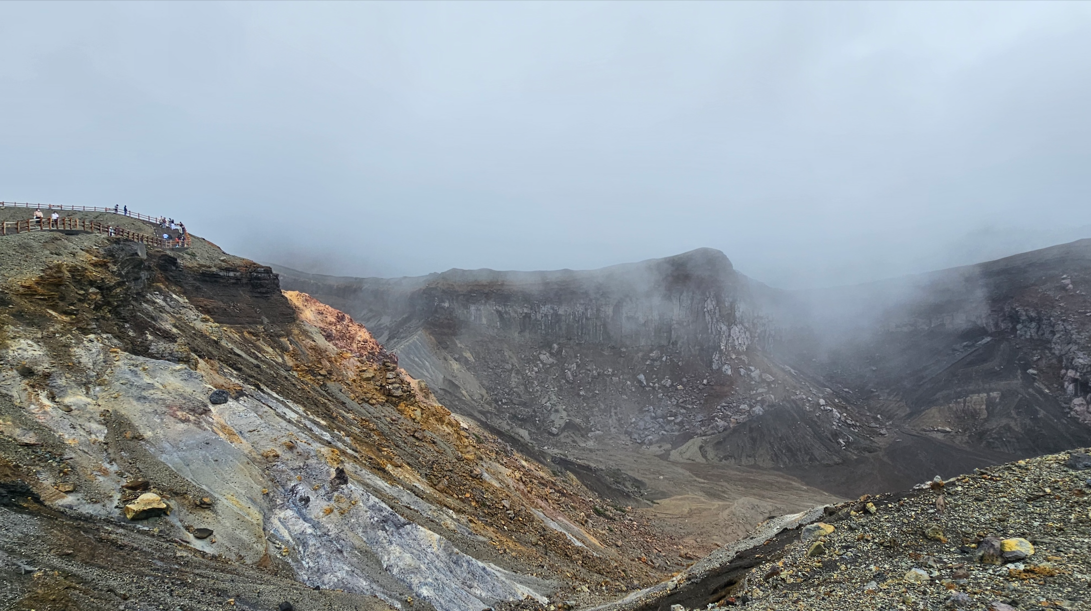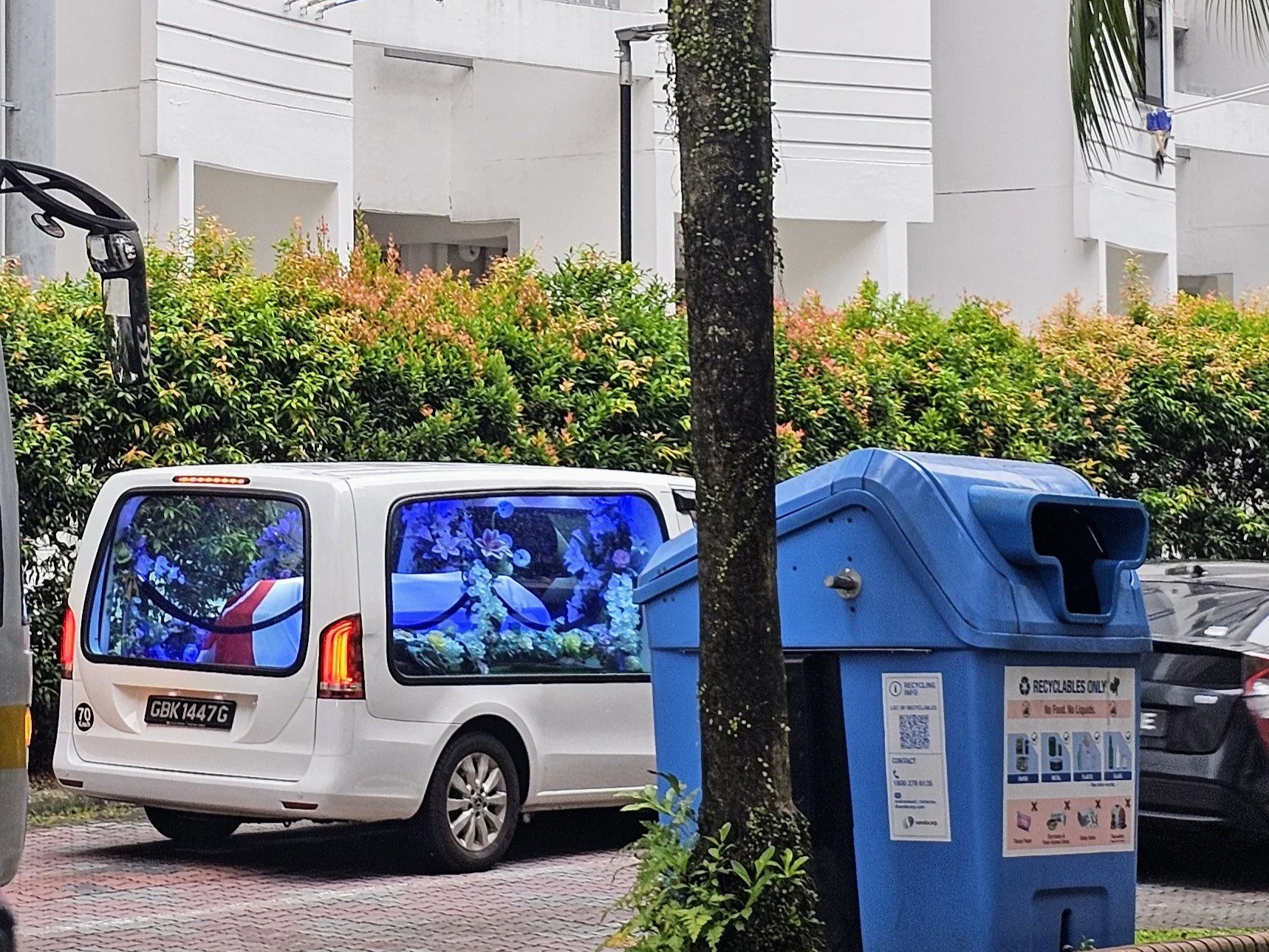death
It’s 9.41pm on a Sunday. I’m seated under a warm and toasty kotatsu, 52km from the active Mount Aso and I cannot stop thinking about death.
In the morning of 25th May, my friends and I took a 1-hour drive up to the crater of Mount Aso and on its information board read “Mount Nakadake is repeatedly created and collapsed.” I thought to myself, ‘how beautiful it is to be destroyed and rebuilt again, and for others to come from all around the world to marvel at each new form. A new form that comes from dying.”
View of one of the craters on Mount Aso (阿蘇山, Asosan).
My friend was sharing about how when a caterpillar reduces itself to mush, and emerges as a butterfly, it retains its consciousness the whole time, reminding me that nature goes through the cycles of living, dying and rebirth, more often than we are aware of. And while we may understand the theory (and fact) that all living things go through the circle of life, we seem to encounter tension when we attempt to relate that theory to ourselves. The living part is usually easier - “you only live once”, “life is too short to be unhappy”, “live everyday like it’s your last”. But what about the part when we leave? What is it about death that stumbles us? What does it represent and why do we fear it?
How does the way we view/things we associate with death affect the way we see life? How does the way we view/things we associate with life affect the way we see death?
It seems that a lot of the old sages, wise sayings and life quotes focus more on the time we spend being alive but much less is said about when that time ends. Besides religion, how else can we plug the gaps and write this story for ourselves?
And if not all stories must come to an end, can we think of our existence as chapters? If so, what will come after life and death?
My wonderings about this topic comes as part of my preparation to deliver a programme surrounding this theme. Just as I have described above, I am one of those guilty of reciting life’s wisdoms as theories without necessarily embodying them. What is it about death that stumbles me? It is hard to ignore the discomfort of others (and perhaps even my own) when it comes to talking about death, personally it always feels like there never really is a ‘right’ thing to say or do. How little is not enough? How much is too much? What does it really mean to give someone ‘my condolences’? Where do we draw the line between sincerity and politeness, obligation and empathy?
I guess in this regard, death in my life is mostly an event with a set of rules to abide by and a code of conduct I have to follow to get through and around it. Death is an event that has happened around me, in various proximities, and somehow I usually got to choose how much or how little I would participate in it. Participation has three parts - physically, mentally and emotionally and my involvement, if any, is almost always physical (attending wakes, helping out, going through the necessary motions). The only time I ever physically experienced death was when my rabbit passed away. Everything leading up to his departure had happened so quickly that at the time I saw his limp body on the metal table, I knew my relationship with death had officially formed. While it had nothing to do with my own mortality, this encounter with death made me feel viscerally what death consists of. Waves of grief that arrives unannounced, gaping holes of pain and the missing of a presence that can never come back.
A goodbye.
Another kind of experience I could have never prepared myself for is the death of a friend. In a heroic way, the news of his departure came from a media article about a fireman who lost his life whilst on duty and to my comfort, I never would have imaginedhim leaving us in any other way. But this did not brace me for the shock, disbelief and heartache that came when I saw the smiling face I recognised in memories that go back from 12 years ago, in more media articles that reported the incident over the course of the week.
Attending his wake, my participation felt significantly different from what I’m familiar with. There he was, my friend laying in the coffin, in a uniform I knew he was proud of wearing, surrounded by the people in his life who knew him to be courageous, passionate, selfless. There he was, my friend, whose spirit would occupy the empty seat we left for him as we gathered around the table snacking on peanuts and the vegetarian buffet.
There and then, death no longer felt like an event. Death felt like a gathering - a gathering of two worlds connected by a life once lived. Death did not feel like a fearful consequence or an eventual demise. Death felt like a natural effect of being alive; that brings us closer to each other and to ourselves - a physical reminder of all the emotions we find hard to bear but yet can, a reminder of the body that we have and what the heart can feel, a reminder of living and being alive.


